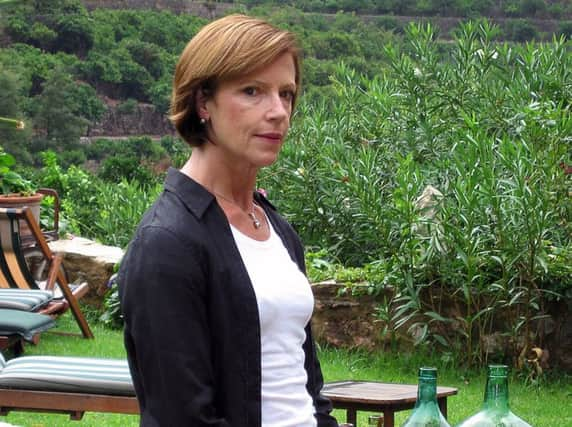Obituary: Sue Lloyd-Roberts, CBE, journalist


In a distinguished career in journalism Sue Lloyd-Roberts reported from some of the grizzliest regions in the world, gaining a deserved reputation for exposing the very essence of corrupt political regimes and social practices. She did so with perseverance, a polite calm and unremitting resolve. There was no hectoring in her interviews and she was recognised for reporting stories from such war-torn areas as Syria, Myanmar, Siberia and North Korea and got her stories back to ITN and the BBC with utmost secrecy.
Her subjects were invariably controversial and her campaigns to advance the cause of human rights often put her in perilous situations abroad. Lloyd-Roberts was more than a campaigning journalist: she was a trailblazer in search of the truth.
Advertisement
Hide AdAdvertisement
Hide AdLloyd-Roberts was a much respected colleague in newsrooms and had recently undergone extensive chemotherapy treatment and had had a stem cell transplant in July. Michael Crick of Channel 4 News said of her yesterday: “Sue exposed human rights abuses in so many countries, it always surprised me the world’s tyrants didn’t gang up to stop her.”
Susan Anne Lloyd-Roberts attended Cheltenham Ladies’ College and then got a BA with Honours reading History and Modern Languages at St Hilda’s College, Oxford.
From university she went straight to ITN working on local UK news stories. She was offered a post within the BBC’s news team and appointed a special correspondent travelling to, and reporting on, major news stories across the world – often under hazardous conditions. She gained a wide renown for her work for both Newsnight and BBC World News’s acclaimed Our World.
In 2010 she reported from North Korea (“Life inside the North Korean bubble”) which she graphically called an example of the 20th century and added perceptively, “and a threat to the 21st”. As she signed off Lloyd-Roberts added: “George Orwell would understand the rewriting of North Korean history.”
She asked to speak to a peasant farmer. Her minders avoided translating the questions. Typically, she persisted calmly, only to get, eventually, what she described as “a rehearsed answer”.
It was an example of Lloyd-Roberts’ refined interviewing technique to capture the atmosphere of a country without undue pestering.
Lloyd-Roberts was a wonderful combination of a polite woman with a mission and a dare-devil reporter. She once smuggled tapes out of a country in her knickers, dodged snipers’ bullets, was smuggled in and out of war zones in car boots and was attacked and shot at in Bosnia by Serbs. (“In those situations you tend to either scream or pray. I picked up my camera.”)
She was fearless and seldom travelled with a team of cameramen. She did her own piece to a video camera often with mayhem all around her.
Advertisement
Hide AdAdvertisement
Hide AdLloyd-Roberts was given a seven-year prison sentence in absentia in China for her reporting on Chinese gulags. She had been arrested so often, she once suggested, with a broad smile, that she was going to compile a Good Jail Guide.
In 2012 for Newsnight she delivered an incisive report from India on the widespread use by foreign multinational drug companies to use Indians as guinea pigs for drug trials. She visited Madhya Pradesh and exposed a scandal that clearly showed the Indian authorities were unable to control any wrongdoings.
It was the sheer brazen determination that made Lloyd-Roberts such a fine investigative reporter. From her earliest days at ITN she was meticulous in garnering facts and always had a total grasp of the background of an assignment.
Her historic reports on female genital mutilation in Burma and North Korea (for which she won an Emmy award in 2011) brought attention to a subject that many in authority had chosen to ignore.
Her diagnosis of cancer provided her with an inner strength. She continued to work but six years ago she and her husband bought a “bespoke guesthouse” on Mallorca – nine bedrooms and a beautiful terraced garden which Lloyd-Roberts managed with unerring style. “I bought it,” she said, “to escape and rediscover my life.” She had had a life-long love of the hills of Wales but in Mallorca she relaxed and enjoyed managing the guesthouse.
Lloyd-Roberts was intrepid under fire, never showing any sense of fear. She admitted, however, since the diagnosis of cancer: “Now it’s different. My life is at risk and it’s not of my choosing.”
She was a brave pioneering journalist – it was not simply the truth for which she searched. Lloyd-Roberts wanted to expose wrongdoing anywhere and in the pursuit of that she was uncompromising, dogged and ground-breaking.
She was twice married and is survived by her second husband the BBC producer Nick Guthrie and two sons from her first marriage.